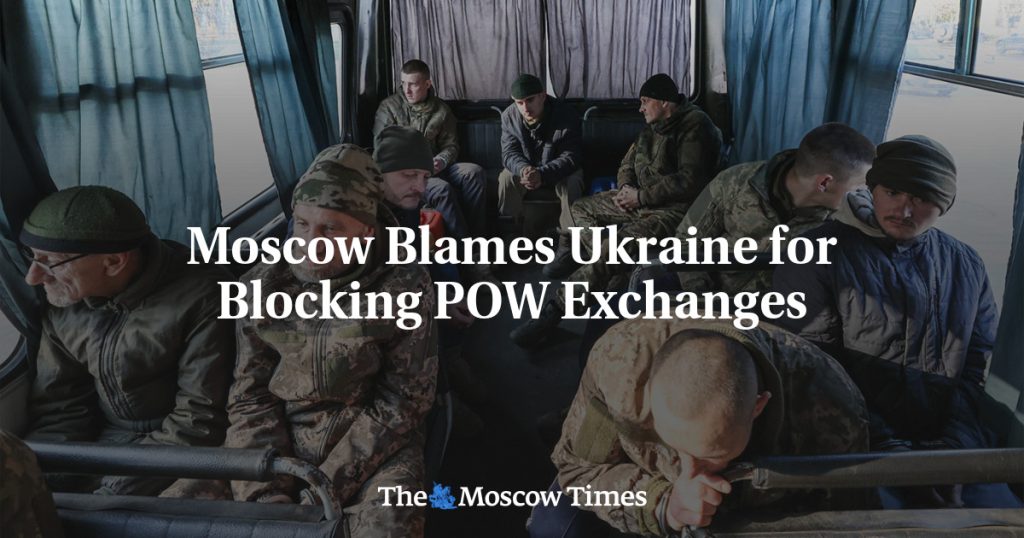Russia’s human rights commissioner, Tatiana Moskalkova, has accused authorities in Kyiv of hindering efforts to secure the further release of prisoners of war. She claims that exchanges have been suspended for several months due to Ukraine’s new and unfounded demands. However, she did not specify what these demands were, and there has been no immediate comment from the Ukrainian authorities in response to these accusations. The last exchange between Moscow and Kyiv involved 200 prisoners of war in early February, making it the 51st swap since the full-scale invasion began. Kyiv reports that over 3,000 Ukrainian prisoners of war have been returned so far, with Russian authorities reporting a similar number, following a one-to-one exchange formula.
The Moscow Times, an independent news source that has been operating for over 30 years, has been labeled as a “foreign agent” by the Russian government in an attempt to silence its voice. The journalists at The Moscow Times are committed to providing accurate and unbiased reporting on Russia and refuse to be silenced. They rely on support from their readers to continue their critical mission. Readers are encouraged to contribute by supporting the news outlet with a small donation starting from just $2 a month. This support helps to ensure the continuation of open, independent journalism in Russia, despite attempts to suppress it.
The ongoing conflict between Russia and Ukraine has led to the imprisonment of numerous individuals, with both sides engaging in the exchange of prisoners of war. However, the process has faced challenges, with accusations from Russia’s human rights commissioner claiming that Ukraine is obstructing further releases. The lack of transparency regarding the demands made by Ukraine adds complexity to the situation, leaving both sides at an impasse in negotiations. Despite the exchanges that have taken place, there remains a significant number of prisoners on both sides awaiting repatriation.
The accusations made by Tatiana Moskalkova against Ukrainian authorities highlight the tensions and challenges present in the relationship between Russia and Ukraine. The issue of prisoner exchanges is just one aspect of the broader conflict that has strained diplomatic relations and humanitarian efforts between the two countries. The lack of progress in negotiations could further escalate tensions and hinder potential efforts for peace and reconciliation in the region. As the conflict continues, it is crucial for both parties to engage in constructive dialogue and cooperation to address the humanitarian issues at hand.
The efforts of The Moscow Times to continue reporting on Russia despite being labeled as a “foreign agent” demonstrate a commitment to upholding journalistic integrity and freedom of the press. By seeking support from their readers, the journalists at The Moscow Times aim to ensure that independent journalism can persist in challenging environments. The need for independent reporting becomes even more critical in situations of conflict and political tension, where access to unbiased information is essential. Supporting outlets like The Moscow Times can contribute to a more informed and transparent public discourse, even in the face of censorship and suppression.
In conclusion, the situation regarding prisoner exchanges between Russia and Ukraine reflects the complexities and challenges inherent in the conflict between the two countries. Accusations of obstruction and demands from both sides contribute to the lack of progress in negotiations, leaving many prisoners waiting for release. The efforts of The Moscow Times to continue providing independent news coverage in Russia despite government pressure underscore the importance of press freedom and transparency in challenging political environments. Moving forward, constructive dialogue and humanitarian efforts are essential to address the plight of prisoners of war and work towards a peaceful resolution of the conflict between Russia and Ukraine.


